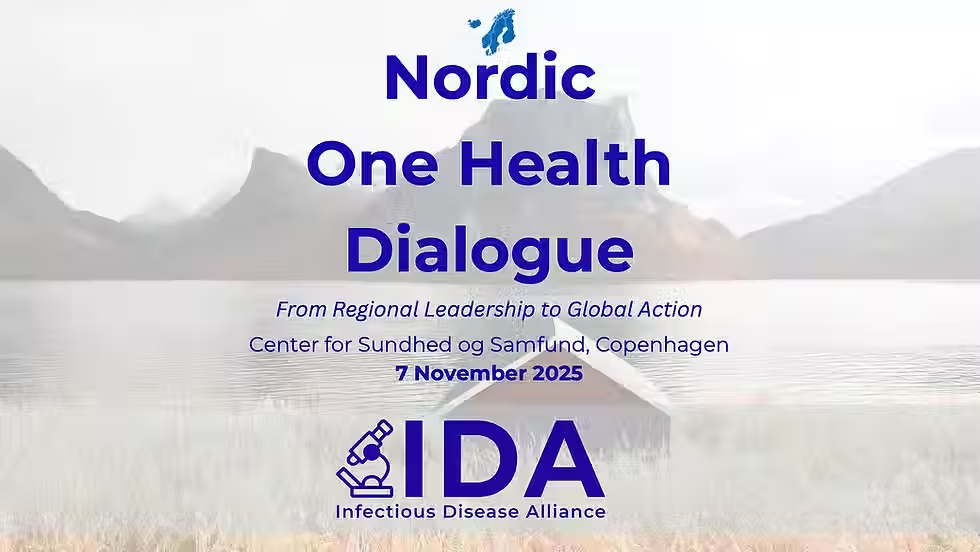World Health Summit Recap: Breaking the Silos: Primary Healthcare as the Bridge between Non-communicable diseases and Infectious diseases
- Eva Bierwirth

- Nov 6, 2025
- 3 min read
On October 13, 2025, the Infectious Disease Alliance (IDA), under the Primary Healthcare Coalition (PHCC), in collaboration with Sightsavers, the Global Sepsis Alliance, FIND – Diagnostics for All, NGO Nest Berlin, AMREF Health Africa, and UNICEF, hosted a high-level panel discussion in Berlin.
The event brought together a diverse group of stakeholders, policymakers, researchers, multilateral organizations, civil society, and global health advocates, both in person and online. It served as a platform to explore opportunities for integration between infectious and noncommunicable disease care, share lessons from practice, and identify concrete actions with primary health care (PHC) the bridge between NCDs and IDs.
Key Topics Discussed:
Integrating Immunisation into NCD prevention and Public Health Responses
Health for Equity, integrating NCDs, IDs and Community Systems through Primary Healthcare
The Role of Diagnostics and Access to Medicine
Partnerships, Governance and Leadership for Sustainable Integration
Speakers Included:
Anamaria Bejar, Director of Public Policy Engagement, GAVI, The Vaccine Alliance
Dr. Fouzia Shafique, Associate Director for Health (PHC & MNCAH), UNICEF
Kaloyan Kamenov, Technical Officer - Disability Programme, World Health Organization (WHO)
Kevin Tetteh, Director of the Fever & Malaria programme, FIND - Diagnosis for All
Prof. Konrad Reinhart, Founding President, Global Sepsis Alliance
Margo Warren, Director of Government Engagement & Policy, Access to Medicine Foundation
Trenton M. White, PhD, Health Researcher, Barcelona Institute for Global Health

Highlights and Takeaways
Bridging the Divide — Anamaria Bejar, Gavi, the Vaccine Alliance Bejar emphasized the often-overlooked link between infectious and noncommunicable diseases, noting that 8.3% of the global NCD burden is linked to infectious causes such as chronic Hepatitis B and HPV. She called for stronger integration between immunisation and PHC to prevent NCDs and strengthen health systems.
“Immunisation and primary health care strengthen each other — integration is the way to build resilient systems.”
From Fragmentation to Integration — Dr. Fouzia Shafique, UNICEF Dr. Shafique underscored the double burden of infectious and noncommunicable diseases on children and the growing impact of climate change on disease patterns. She called for unified action at the country level, supporting Ministries of Health and communities to co-design solutions.
“Breaking silos requires true collaboration at country level, supporting ministries of health and aligning partner priorities.”
Diagnostics as a Foundation for Integration — Kevin Tetteh, FIND Kevin Tetteh reminded that diagnostics guide 70% of clinical decisions and are key for data, surveillance, and effective targeting of health interventions. However, siloed financing remains a major barrier. He called for rethinking funding models to promote integrated diagnostics and care pathways.
“Without diagnostics, we can’t see the full picture, integration starts with information.”
Inclusive Health for All — Kayolan Kamenov, WHO Kamenov stressed that integration must include people with disabilities and those left behind by current health systems. He emphasized that the quality of governance and leadership, not just funding, determines how equitable care can be.
“Integration is about inclusion — no one should be invisible to the health system.”
The Power of Partnerships — Margo Warren, Access to Medicine FoundationMargo Warren addressed the urgent need to expand access to essential medicines for both NCDs and IDs. She stressed that collaboration must be proactive, not reactive. Partnerships between governments, civil society, and private sector actors must be established before crises occur.
“Partnerships built in peace will save lives in crises.”
Sepsis and System Resilience — Prof. Konrad Reinhart, Global Sepsis Alliance
Konrad Reinhart highlighted that over 60 million sepsis cases occur annually, yet the condition remains poorly understood and rarely prioritized on national agendas. He stressed that patients with NCDs face heightened risks of sepsis, underscoring the need for integrated approaches to prevention and treatment across disease areas.
“Sepsis sits at the intersection of infectious and noncommunicable diseases — integration can save lives.”
Lessons from HIV — Trenton M White, PhD, Barcelona Institute for Global Health
Trenton M White concluded by emphasizing the need for proactive partnerships built before crises arise. Drawing on lessons from the HIV response, he stressed the importance of community involvement, cross-sector collaboration, and data-driven policy as foundations for successful integration.
“We learned from HIV - we must bring those lessons forward.”
Key Stats:
Registered event attendees: 580
Physical event attendees: 30
Livestream Views on the day of the event: 890
Geographical reach: global
Looking Ahead:
The PHCCwill pursue the following actions to sustain momentum:
Dissemination of the Joint Statement
Publishing the event recording and summary materials
Joint Statement:
PHCC urges that:
Governments and Policymakers should prioritize Integration in Policies and Investments
Donors and Global Health Financing Institutions should Invest in Integration
Civil Society and Communities should drive Equity and Accountability
It is a shared Responsibility to Mobilize Political and Public Will
All sectors should foster Multisectoral and Cross-Border Collaboration
See the Livestream here: https://www.youtube.com/live/UkLDBnuYGP4
Check out the Event Report:






This recap highlights the importance of integrated health systems and breaking down silos in care delivery. Discussions around healthcare credentialing are crucial to ensure qualified professionals are trusted and mobilized where they’re most needed. Valuable insights for anyone invested in strengthening primary healthcare globally.